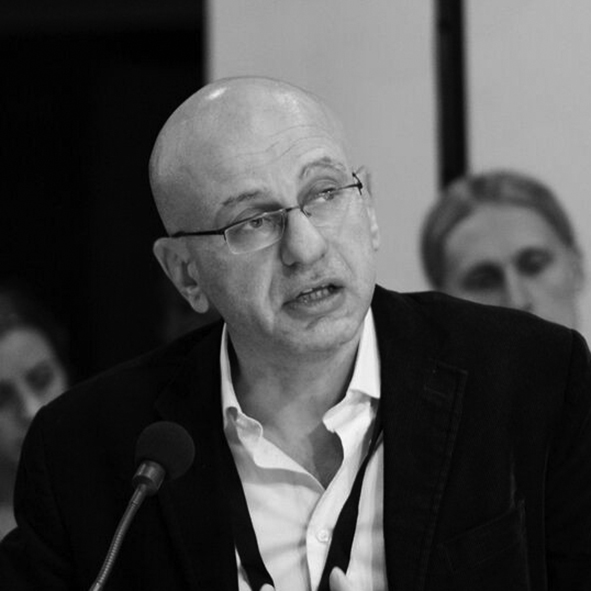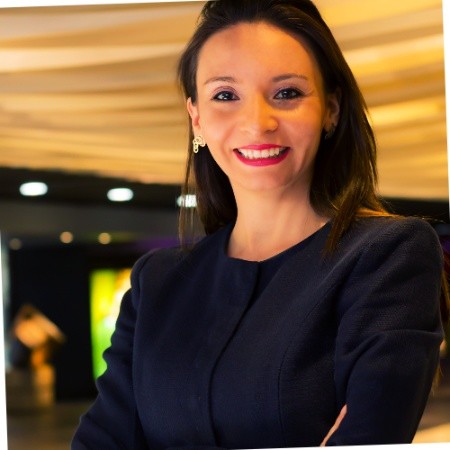CKC 2023: New Futures for Creative Economies
Day 1
The Informal Economy in the Global South
Abstract
COVID has highlighted the importance of cultural activity in sustaining communities and individual livelihoods outside the structures of formal finance and the formal economy. Even in normal times, more than 60% of all economic activity globally is estimated to take place in the informal sector and the proportion is almost certainly higher in creative and cultural industries —whether in the real or the online worlds. For all the obvious downsides of exploitation and vulnerability in the informal sector, it is crucial in creating opportunities for women, young people, the unqualified or those of uncertain status, and especially in the vast and rapidly growing megacities of the southern hemisphere. Despite its apparent fragility, it is a sector that has shown astonishing resilience throughout the pandemic and, as well as being a source of income for individuals, has had a role in sustaining the cultural, social and economic bedrock of communities. It is agile, innovative and relatively low in its environmental and natural resource impacts. All these qualities give it the potential to make a significant contribution to public discourse during this year of acknowledging the contribution of the creative economy to the UN’s Sustainable Development Goals. Yet there is little research into how public policy might build on its strengths, minimise its weaknesses and facilitate the many complex and productive interactions between the formal and informal cultural economies. The PEC International Council has undertaken research into ‘The Relationship between the cultural economy and the informal economy in the global south’. This was agreed during the course of discussions about decolonisation and, in particular, the need to recognise that while policy research into the creative economy remains heavily skewed towards the northern hemisphere, much of the most effective and innovative policy practice is in the southern hemisphere. Supported by the British Council, which, with the AHRCjointly sponsors the PEC International Council, primary research was undertaken in Brazil, Chile, Colombia, Ecuador, Egypt, Kenya, India, Indonesia and South Africa. This drew on the resources and networks of the PEC International Council members who span a range of disciplines as academics, policy professionals, investors and entrepreneurs. And although the depth of the research has been necessarily modest, it has already revealed some clear common themes and points to the need for public policy initiatives that could help to maximise the positives and minimise the negatives of a sector that is vital to the economic and social wellbeing of millions of people.
Case Studies
The City as a Playground (Indonesia)
Jalanjajan.bdg as a juncture of informal economy and creative economy in Bandung. JalanJajan.bdg is an initiation of Bandung Creative City Forum in an Urban Game activity to get to know the city through its local culinary and historical approach. The activities are guided by a book that contains a map and 20 challenges, so that the participants can walk and explore the corners of the city, be encouraged to empathize with the environment and various elements surrounding the targeted creative economy actors.
Street life in Maboneng: Appearance and Disappearance in Constant Interplay (South Africa)
The research area is Maboneng, a Sesotho word meaning ‘Place of Light’, an inner-city area falling within City and Suburban, Jeppestown and New Doornfontein in the City of Johannesburg, South Africa. It was established as a private urban development in the south east of the central city of Johannesburg which attracted cultural organisations and creative enterprises. This previously industrial area known as City and Suburban was renamed Maboneng by the private developer, Jonathan Liebmann, founder of Propertuity, who initiated this property led creative cluster in 2009. The deindustrialisation process of the 1980s led to empty warehouses and factories which Propertuity acquired with a vision for ‘nurturing a creative community in inner-city Johannesburg’ (Gregory, 2016: 163).
This paper seeks to understand the nature of financing in the informal sector with a focus on Uhuru Market, an informal market. Many business commentators and reputable business writers of major business publications often describe informal businesses in the global south, Asia, Latin America and Africa only through the lenses of informality, a concept which has not only become monolithic but the definitive characteristic of businesses in our side of the world. In these presentations, among the amiable commentators’ informality is seen as either a euphemism for unregulated businesses which are usually run by people unemployed in the formal sector of the economy, with low specialisation, low capitalization, low productivity, and with few protections on one hand, and unethical and illegal businesses which operate “ under the radar,” always “circumventing the law through loopholes” promoting “chaotic business environments with open secrets, unwritten rules and hidden practices of getting things done.” From this vantage point, formalisation is the panacea — that informal businesses van only be motivated by nefarious ends such as tax dodging, rather than enlightened and legitimate business strategy consisting of a cost-benefit evaluation, the difficulty, corruption and inefficiency in formalizing and the harsh time penalty on small ventures. These sets of assumptions crystalize into a mainstream suspicion towards informal businesses thereby limiting their interest in investigating and developing prototypes which would help build the necessary understanding and with it, introduce transparency which is critical to the underwriting responsive public policies, encourage investment and growth. In this paper, through a case study approach on the Uhuru textiles market in Nairobi, we have attempted to dissuade ourselves from any fixed notions on informality and informal business conditions through asking numerous questions, addressing these questions with a degree of courageous honesty as well as in allowing the insights from this inquiry to confront and testing our assumptions.
Business of Handmade (India)
The research documents the role of craft-based enterprises in formalising India’s artisan economy. 200M documented 12 social and creative enterprises from diverse geographies, of varying sizes, and legal structures to understand how they navigate challenges posed by informality and culture. There is
a growing tribe of small businesses and micro, small, and medium enterprises (MSMEs) — formal enterprises in India’s handmade sector, often women-led, who play a pivotal role in bridging the language and resource gaps for dispersed artisan communities. Such enterprises are adapting to local needs and contexts to create long-term value. Findings also confirm that context-specific entrepreneurial action can catalyse inclusion of informal and traditionally marginalised creative communities.
Biographies
Avril Joffe – Johannesburg, South Africa
Head of Cultural Policy & Management Department at the Wits School of Arts, University of the Witwatersrand
Avril is an economic sociologist working at the intersection of academia and practice in fields such as culture in urban life, culture and the cultural economy, fairness in international cultural cooperation and the rights and status of cultural practitioners working with international agencies (ILO, UNESCO, UNCTAD), African bodies (African Union) and African governments. Avril is the postgraduate coordinator of the Cultural Policy and Management department at the Wits School of Arts. She is an active member of UNESCO’s Panel of Experts for Cultural Policy and Governance and of the International Cultural Relations Research Alliance (ICRRA).
Tita Larasati – West Java, Indonesia
Lecturer and Researcher at Industrial Design Program, FSRD ITB, Indonesia
Tita is a product designer, lecturer/researcher at Institut Teknologi Bandung (ITB), Focal Point for Bandung City of Design UNESCO Creative Cities Network, and Deputy of Strategic Partnership of Indonesia Creative Cities Network (ICCN). She chairs Bandung Creative City Forum (BCCF) and Bandung Creative Economy Committee, is the advisor for West Java Creative Economy & Innovation Committee (KREASI), is a member of The Indonesian Young Academy of Science (ALMI) and The Indonesian Academy of Sciences (AIPI), and is climate leader for The Climate Reality Project (TCRP) Indonesia. She creates a graphic diary and co-founded CAB, an independent publisher.
George Gachara – Kenya
Social entrepreneur, Arts Manager, and the Managing Partner at HEVA Fund LLP.
George is a social entrepreneur, arts manager, and managing partner at HEVA Fund LLP. George is leading the development and business exploration of the creative industries in Eastern Africa and is providing leadership in creating long-term economic and cultural value in this dynamic sector.
Omar Nagati – Egypt
Architect, Urban Planner and Co-founder of CLUSTER
Omar is a practicing architect and urban planner, the co-founder of CLUSTER, an urban design and research platform downtown Cairo, and an educator at a number of local and international universities, most recently as a visiting professor at the University of Sheffield, UK.

Rehana Mughal

Avril Joffe

Tita Larasati

George Gachara

Omar Nagati



